Search Results
Showing results 41 to 60 of 148

Map Your World
Source Institutions
In this activity, learners map their world by drawing a plan of their bedroom.

Does Size Make a Difference?
Source Institutions
In this activity on page 15 of the PDF, discover how materials and physical forces behave differently at the nanoscale.
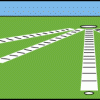
The Size and Distance of the Planets
Source Institutions
In this activity, learners investigate the concepts of relative size and distance by creating a basic model of the solar system.

Exploring the Solar System: Pocket Solar System
Source Institutions
“Exploring the Solar System: Pocket Solar System” is a hands-on activity in which visitors make a scale model of the distances between objects in our solar system.
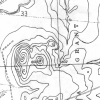
Blazing the Trail
Source Institutions
In this math lesson, learners estimate distances between landmarks and use a map and scales to determine the actual distances.

What is a Nanometer?
Source Institutions
This lesson focuses on how to measure at the nanoscale and provides learners with an understanding how small a nanometer really is.

Perspectives: Powers of 10
Source Institutions
In this activity, learners complete a series of drawing activities to explore scale and powers of 10. Learners first trace each other on 1-meter-square pieces of paper.
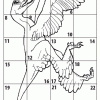
Smaller Than You Think
Source Institutions
Learners compare a life-size drawing of a Tyrannosaurus rex head and a full-size Sinornithosaurus body to understand that dinosaurs varied in size.

Jump to Jupiter
Source Institutions
In this activity, learners help create and then navigate an outdoor course of the traditional "planets" (including dwarf planet Pluto), which are represented by small common objects.
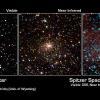
Colors of Stars
Source Institutions
In this activity, learners observe colors in the flame of a burning candle to explore connections between matter, light, color and temperature -- basic concepts of matter and energy.

Paper Cutting
Source Institutions
In this activity about scale, learners investigate the world of the very small by cutting a 28 centimeter strip of paper in half as many times as they can.

The Thousand-Yard Model
Source Institutions
This is a classic exercise for visualizing the scale of the Solar System.

Pocket Solar System: Make a Scale Model
Source Institutions
This fun and simple hands-on astronomy activity lets learners build a scale model of the universe with little more than adding machine tape.

Exploring Forces: Gravity
Source Institutions
In this nanoscience activity, learners discover that it's easy to pour water out of a regular-sized cup, but not out of a miniature cup.

Scaling an Atom
Source Institutions
In this activity, learners make a scale model of an atom to see how big or how small an atom is compared to its nucleus. Learners will realize that most of matter is just empty space!
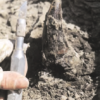
Compare Dinosaur Body Parts
Source Institutions
In this activity, learners explore the size and scale of dinosaurs. Learners listen to "The Littlest Dinosaurs" by Bernard Most to learn about the different sizes of dinosaurs.
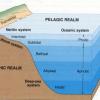
Introduction to Ocean Zones
Source Institutions
In this activity, learners will create a diagram of the ocean zones and determine what organisms live in each zone.
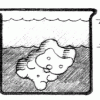
Gummy Growth
Source Institutions
In this activity related to Archimedes' Principle, learners use water displacement to compare the volume of an expanded gummy bear with a gummy bear in its original condition.
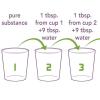
Sniffing for a Billionth
Source Institutions
This is an activity (located on page 4 of the PDF under What's Nano? Activity) about size and scale.
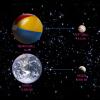
Sizing Up the Universe
Source Institutions
In this online interactive challenge, learners choose items to represent the Earth or solar system, then determine other items to represent the Moon, or Milky Way based on their relative size.
